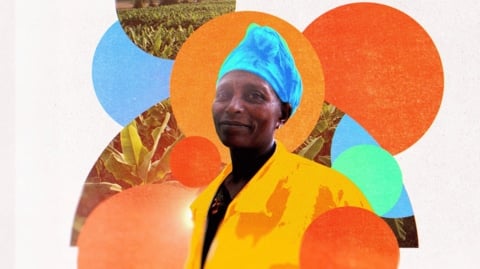Key Takeaways:
- Campaign unveiled on the International Day of Rural Women, calling for greater investment in smallholder farms
- Partnership between Project Dandelion and the International Fund for Agricultural Development (IFAD)
- Highlights women farmers’ role in driving climate resilience, food security, and sustainable development
- Features global case studies from Ethiopia and India demonstrating transformative impact of women-led initiatives
Global Call to Action
On the International Day of Rural Women, Project Dandelion launched a new global campaign urging leaders to increase investment in smallholder farms ahead of COP30. In partnership with the International Fund for Agricultural Development (IFAD), the campaign highlights the vital role women farmers play in strengthening food systems, promoting sustainability, and building climate resilience.
Smallholder farmers produce one-third of the world’s food and nearly 70 percent in Africa, yet they receive less than 1 percent of climate finance. Women represent a majority of the agricultural workforce in regions such as South Asia and sub-Saharan Africa. Research indicates that investing in women farmers could add up to US$1 trillion to the global economy.
Voices of Leadership
“Smallholders are anything but ‘small'—they power our food system, drive rural economies, and lead innovative climate solutions that benefit us all,” said Mary Robinson, Co-Founder of Project Dandelion and former President of Ireland. “The lack of investment in women farmers is not just an injustice; it is holding back the solutions we urgently need.”
Gerardine Mukeshimana, Vice-President of IFAD, added, “Women farmers are not waiting for handouts; they are already feeding their communities, running small businesses, and managing natural resources. By investing in women farmers, we are not only supporting livelihoods and food security, we are also building stronger, more stable societies.”
Proven Impact Across Regions
In Ethiopia’s southern region, women now hold 25 percent of leadership roles in Irrigation Water User Associations, improving water governance and productivity. “Investing in women pays in multiple ways—it improves productivity, enhances family wellbeing, and conserves the natural environment,” said Nuredin Asaro, National Program Manager, Participatory Agriculture and Climate Transformation Programme, Ministry of Agriculture, Ethiopia.
In India, women-led cooperatives have transformed once-barren land through bamboo cultivation, creating sustainable incomes and integrating into global supply chains. “When women assume leadership roles, they foster inclusive growth, improve household incomes, and advance social well-being,” said Rajlaxmi Shah (IAS), Managing Director of Maharashtra State’s Women Development Corporation (MAVIM).
A Shared Vision for COP30
The campaign calls on COP30 leaders to dismantle systemic barriers that limit rural women’s access to finance, resources, and decision-making power. By showcasing successful women-led projects, the initiative underscores the potential of targeted investment in women smallholders to drive measurable impact across food security, climate adaptation, and economic resilience.
“Women farmers are not a side story—they are central to the fight against climate change,” said Ronda Carnegie, Co-Founder and Executive Director of Project Dandelion. “When we invest in women farmers, we invest in a liveable future. Now it’s our turn to deliver for them.”


